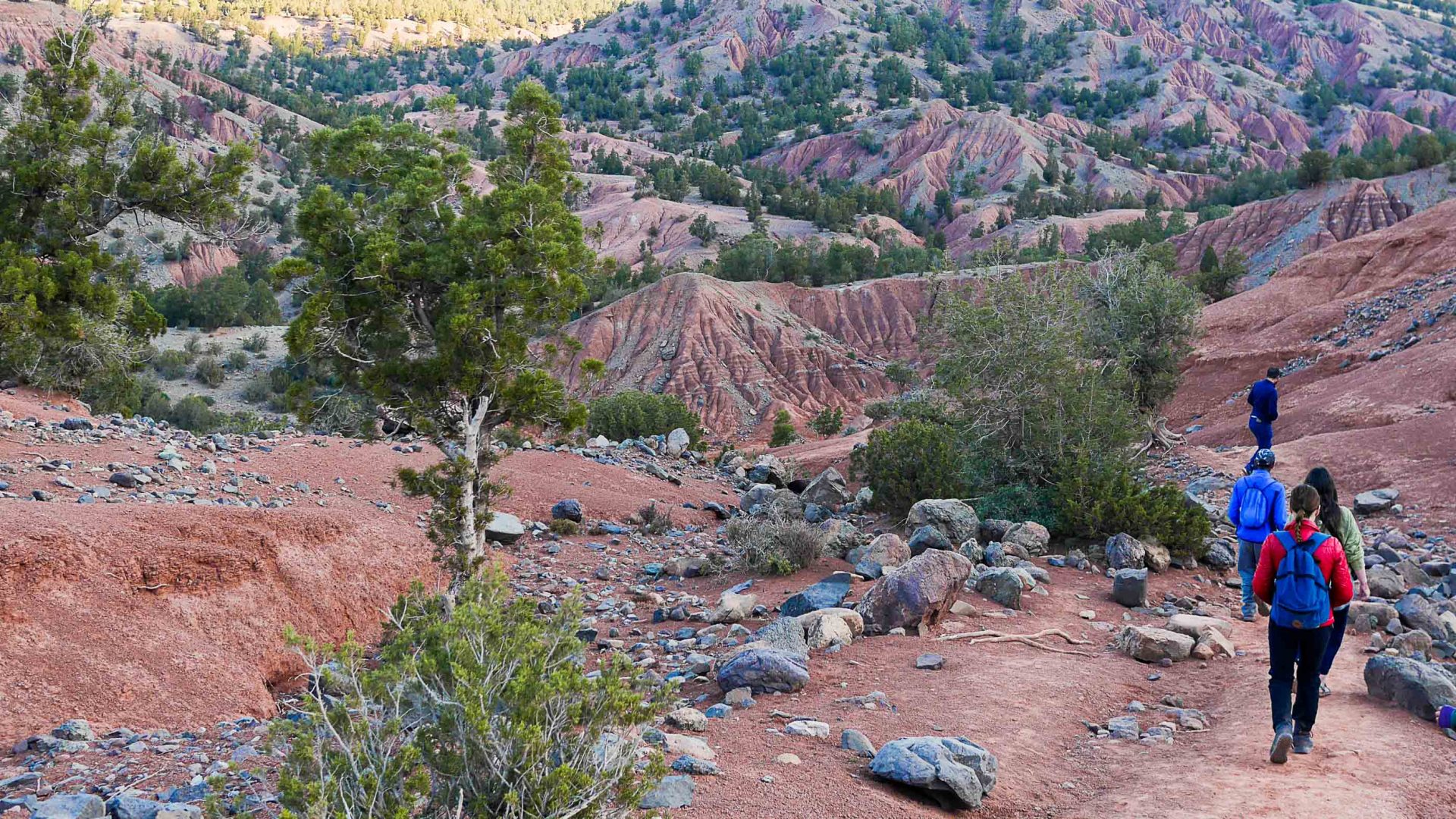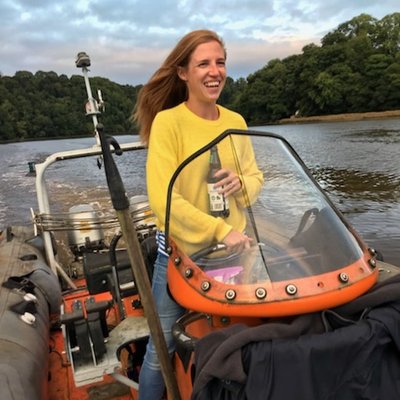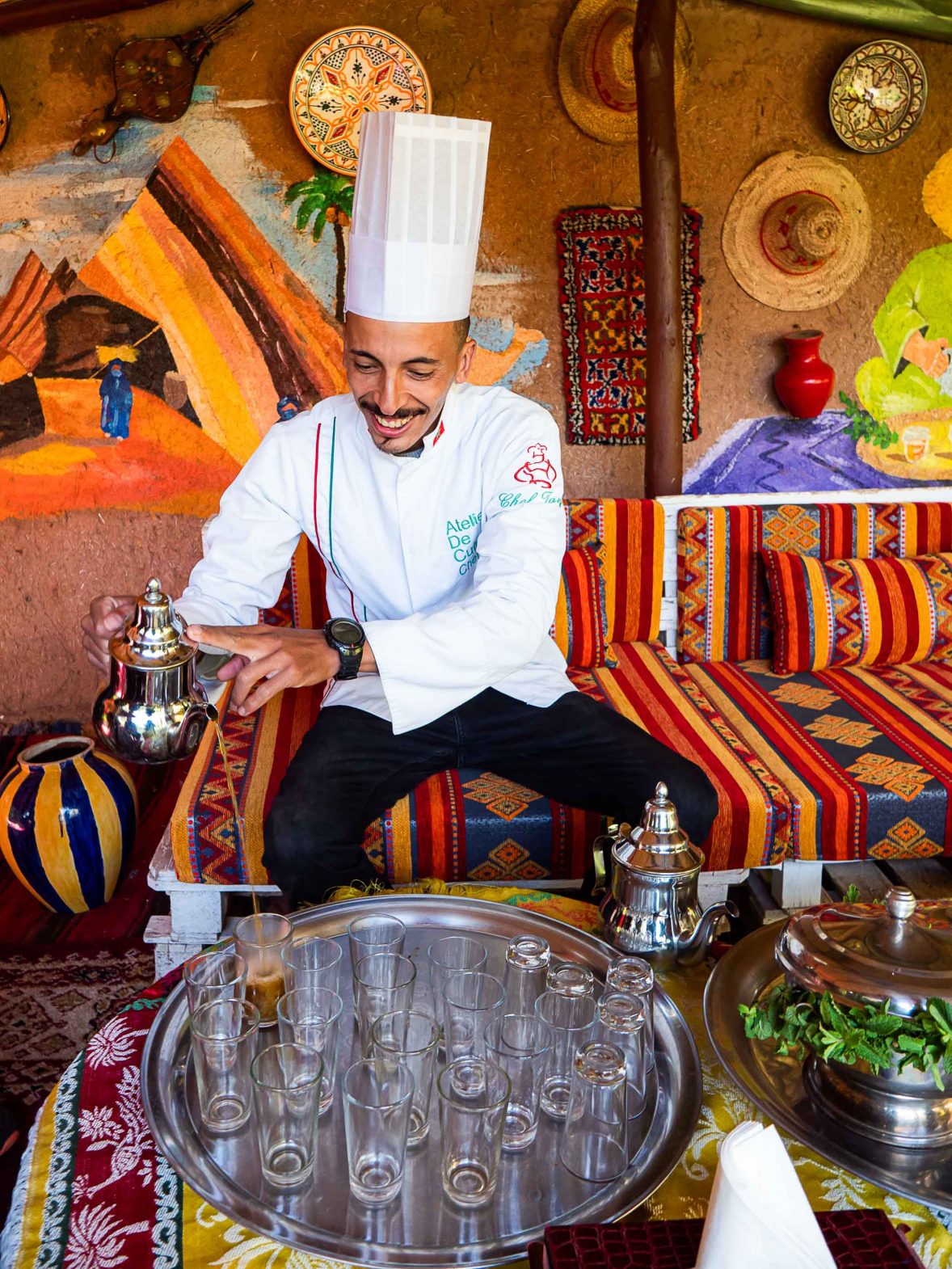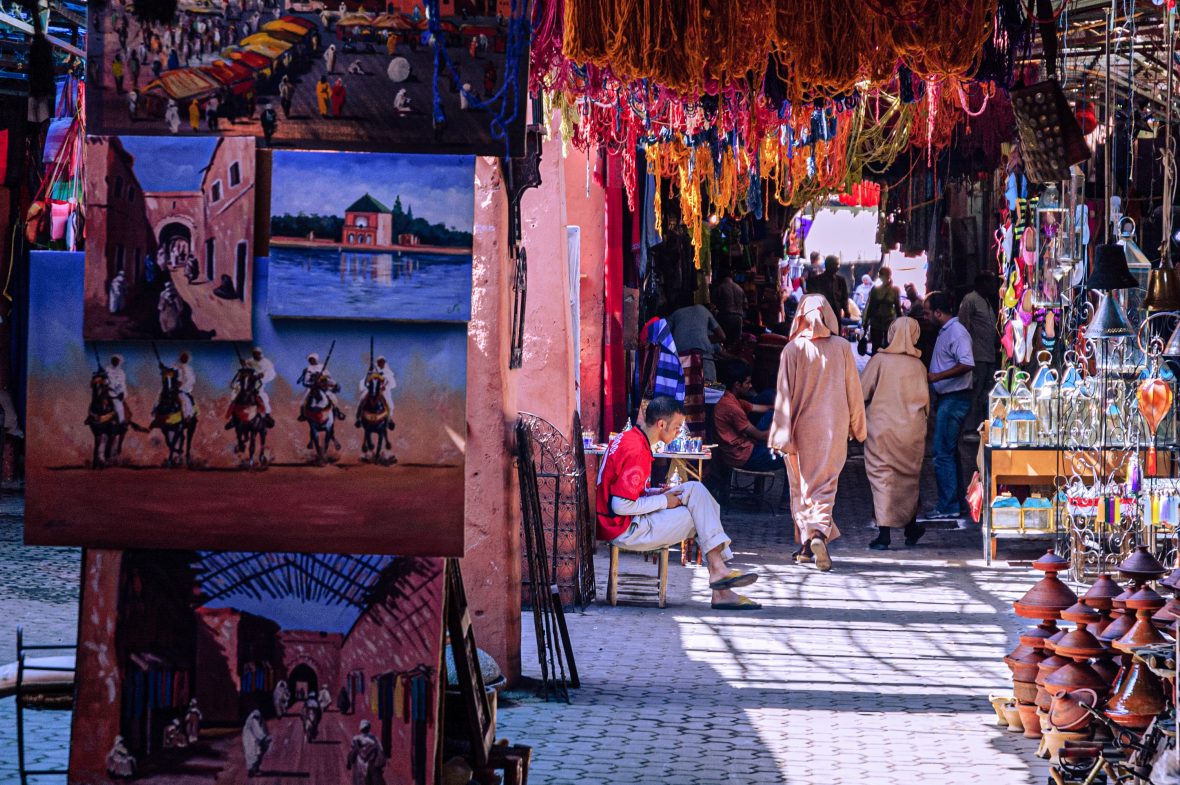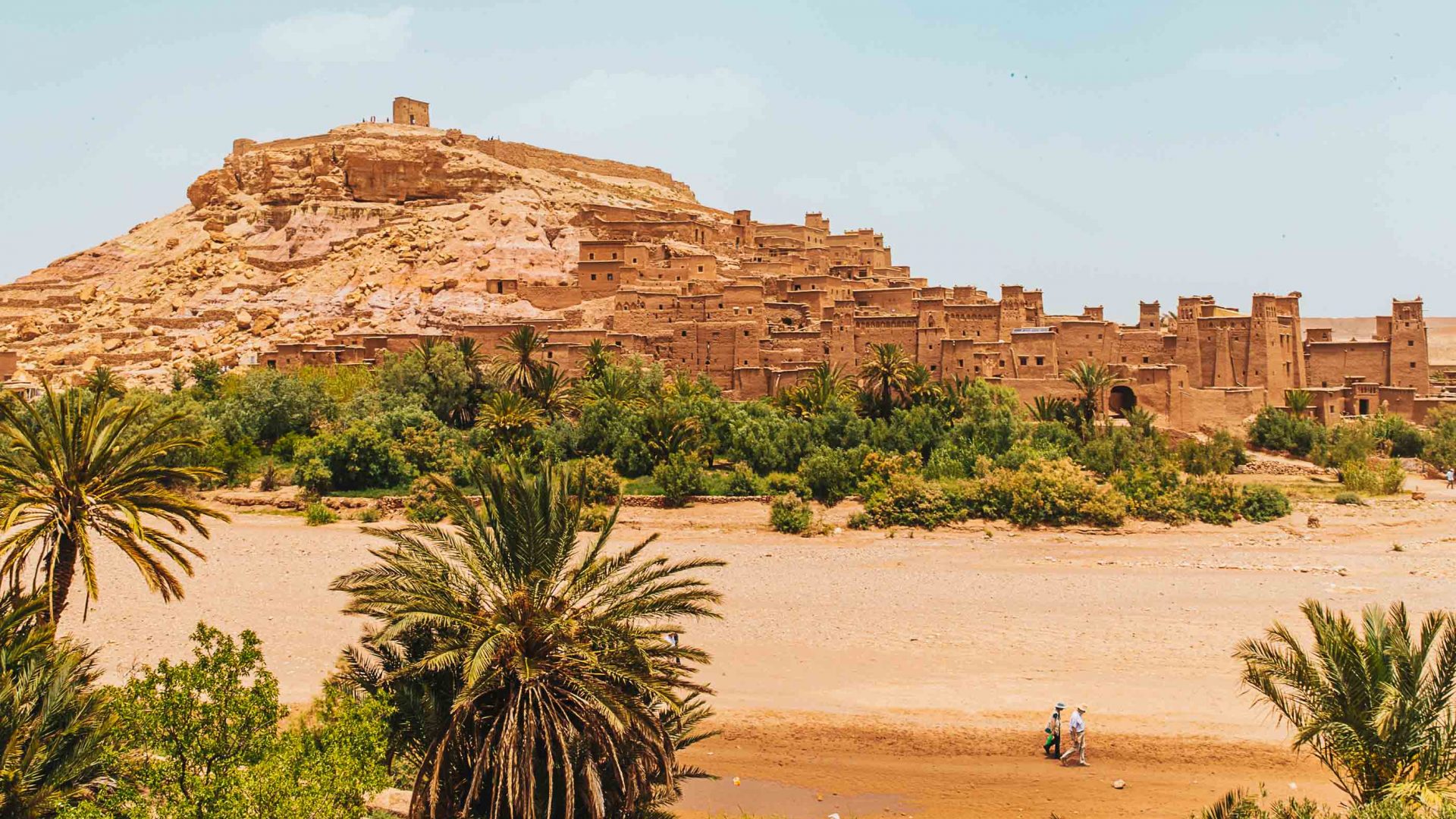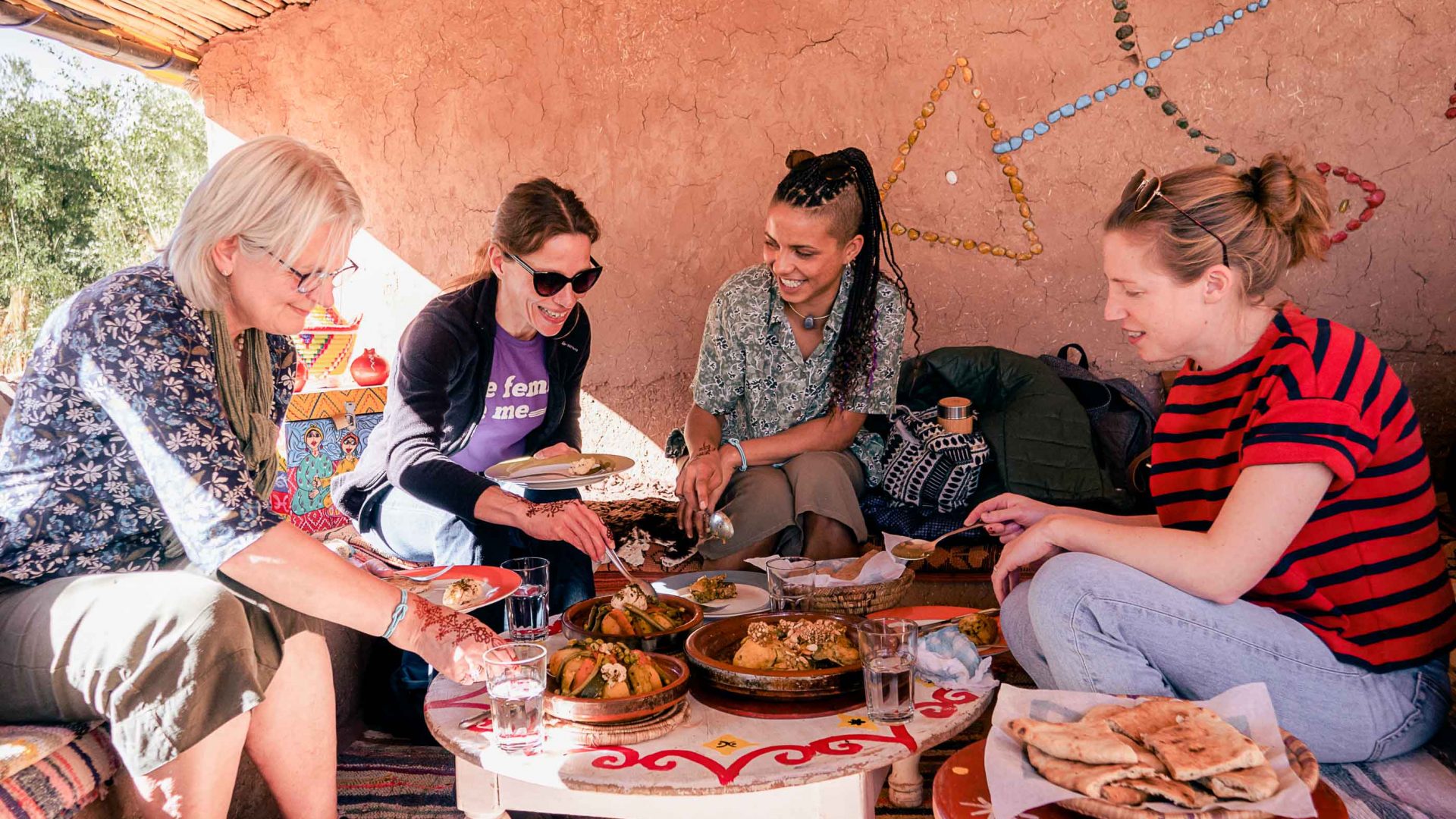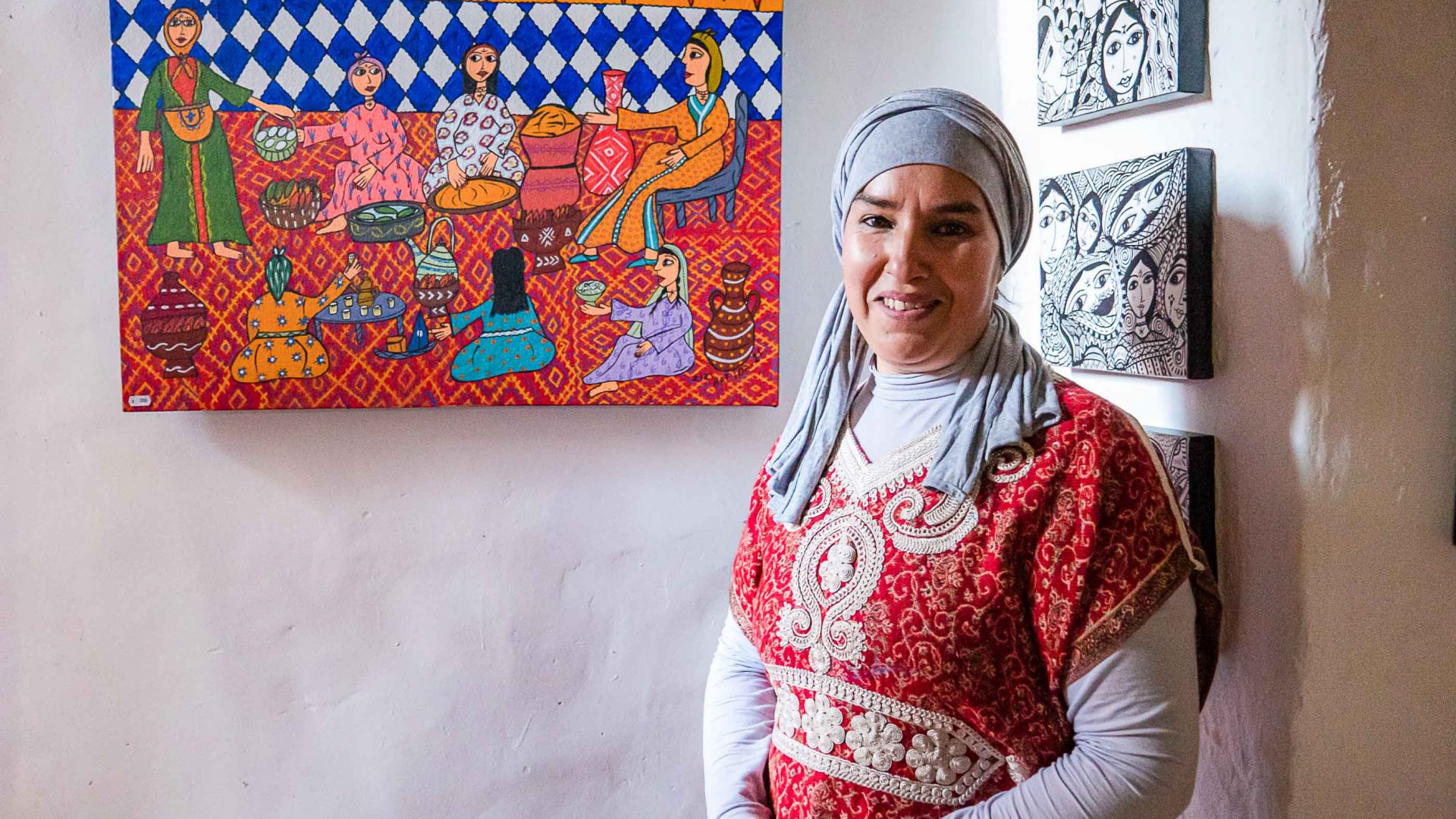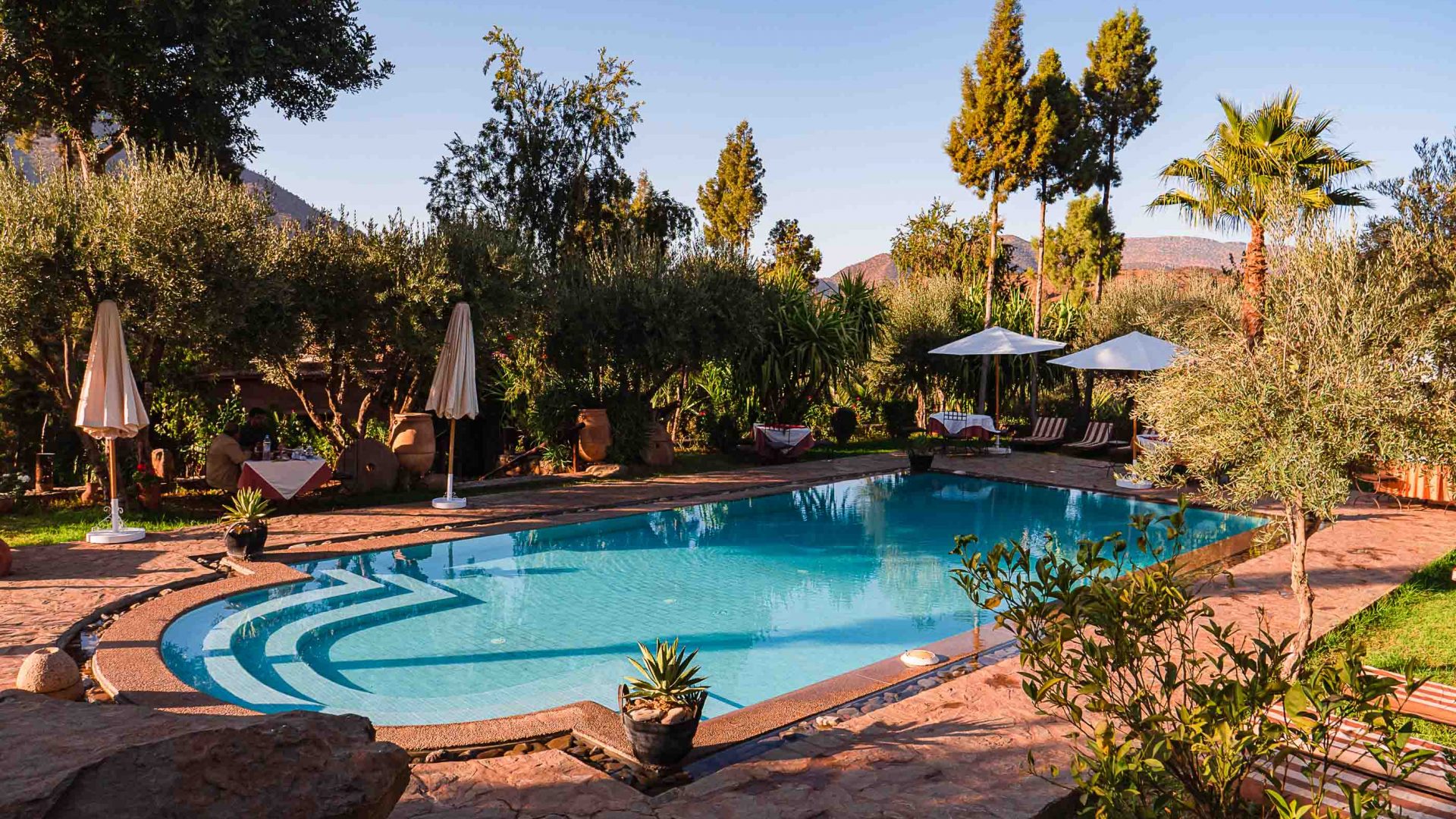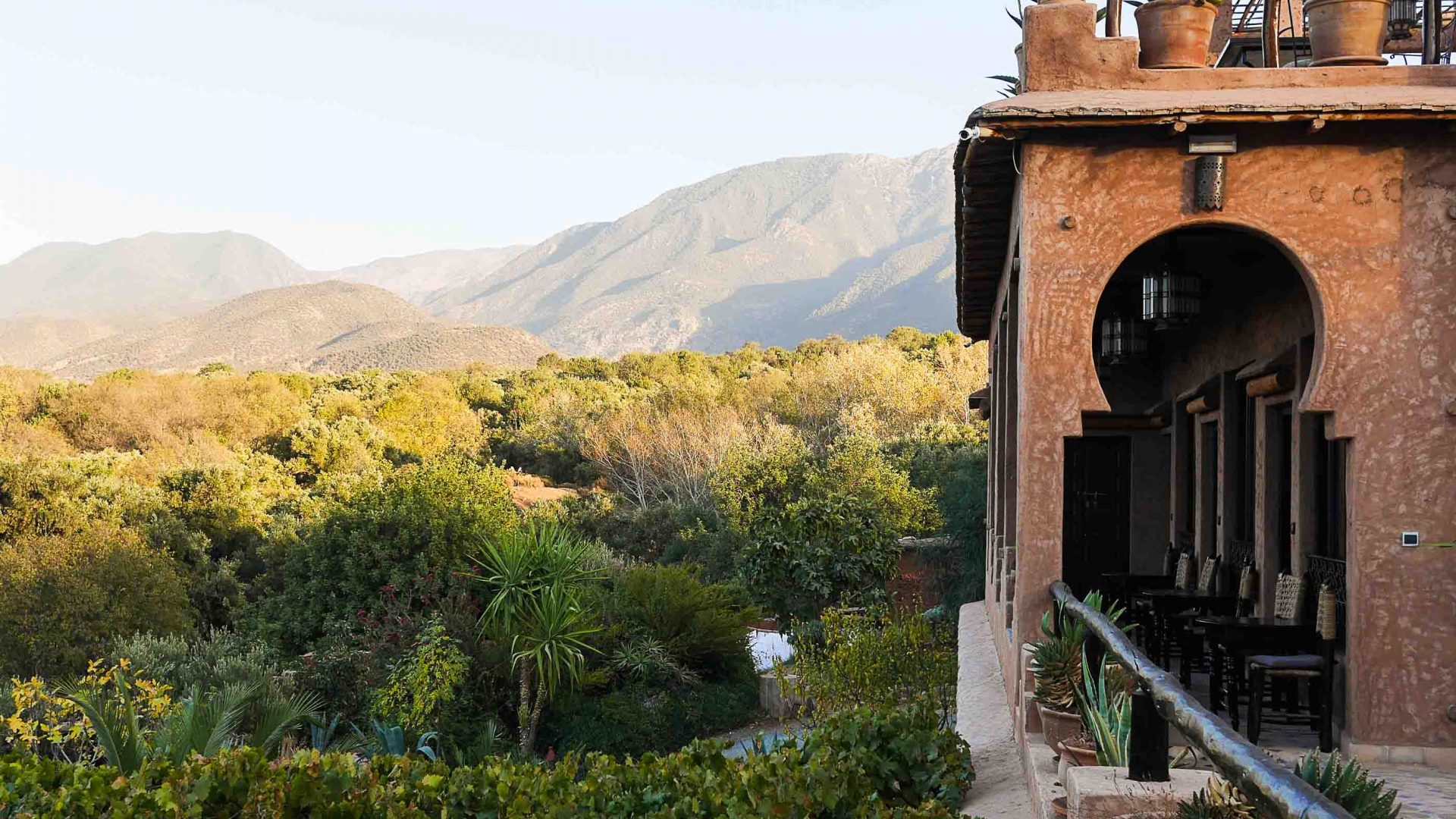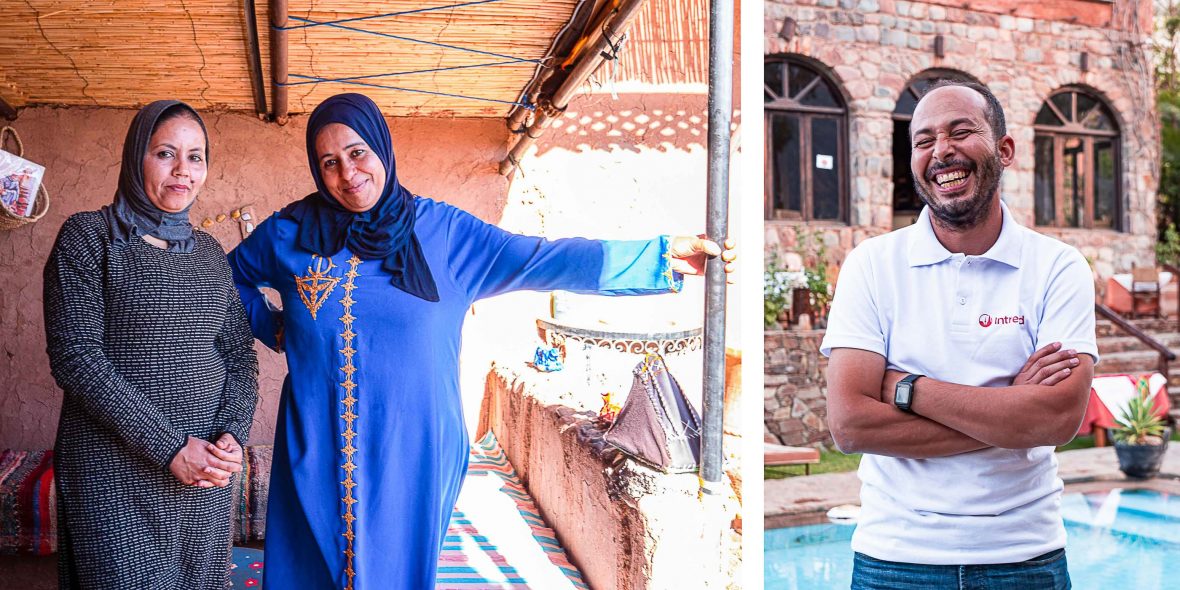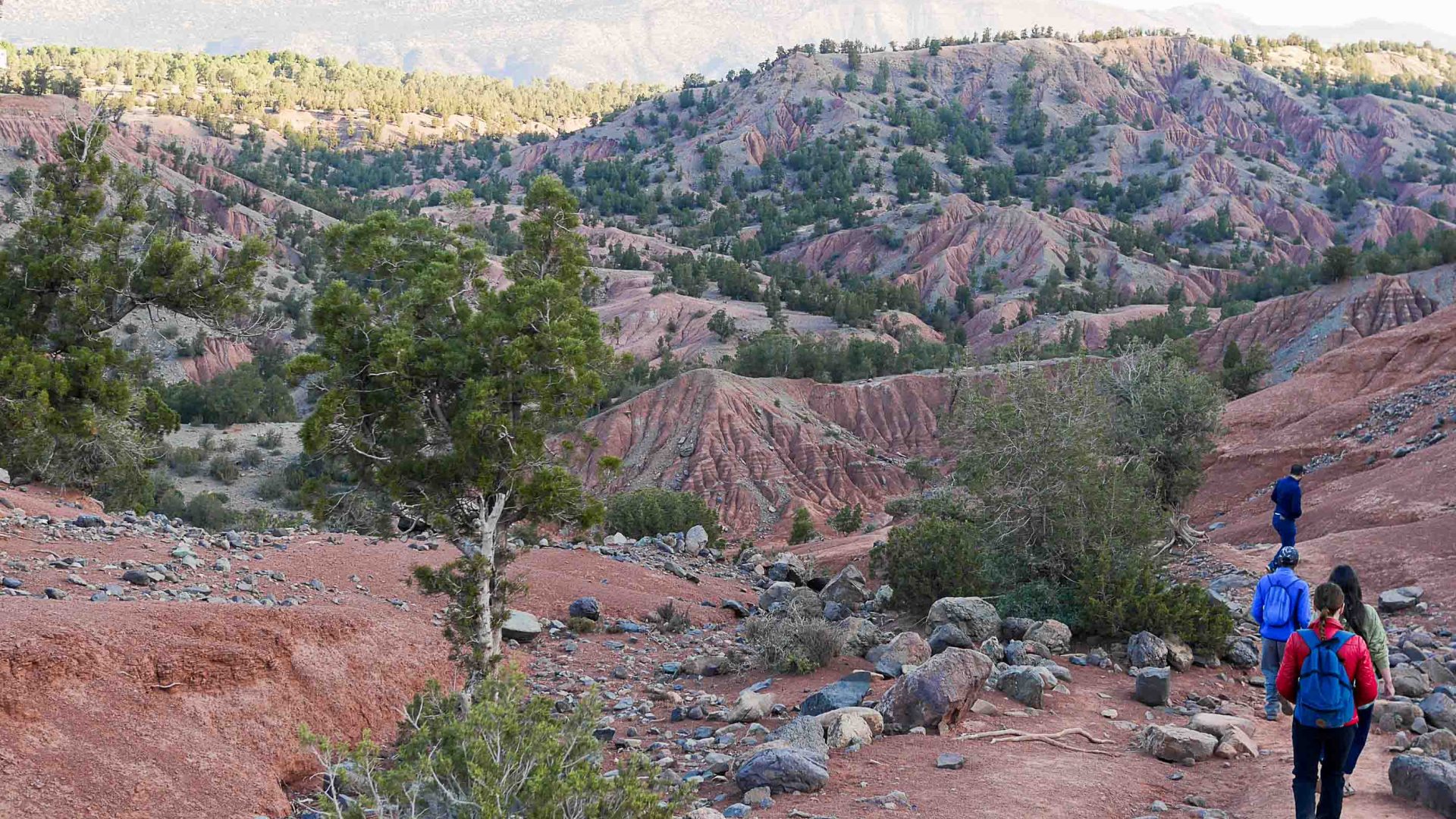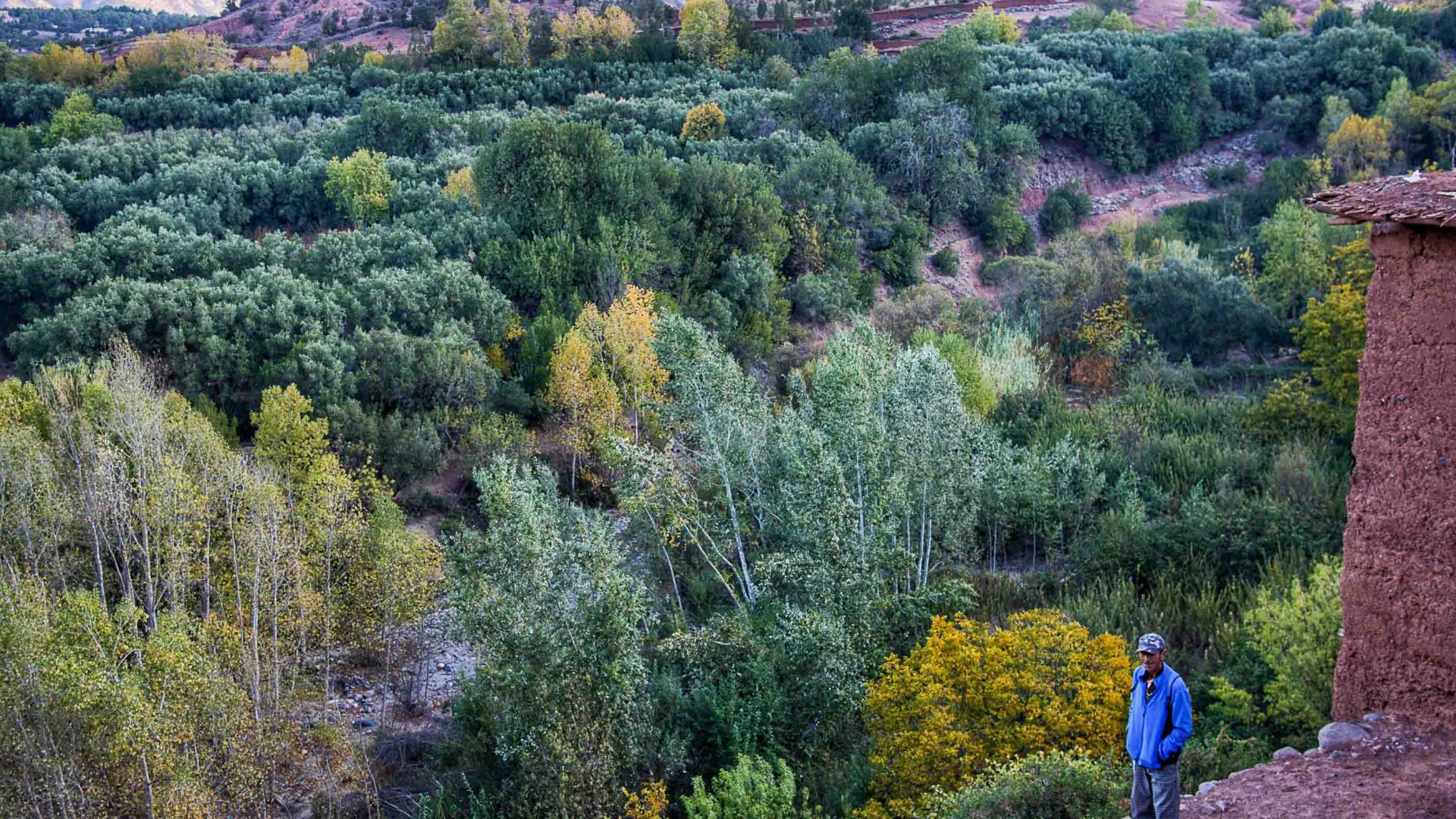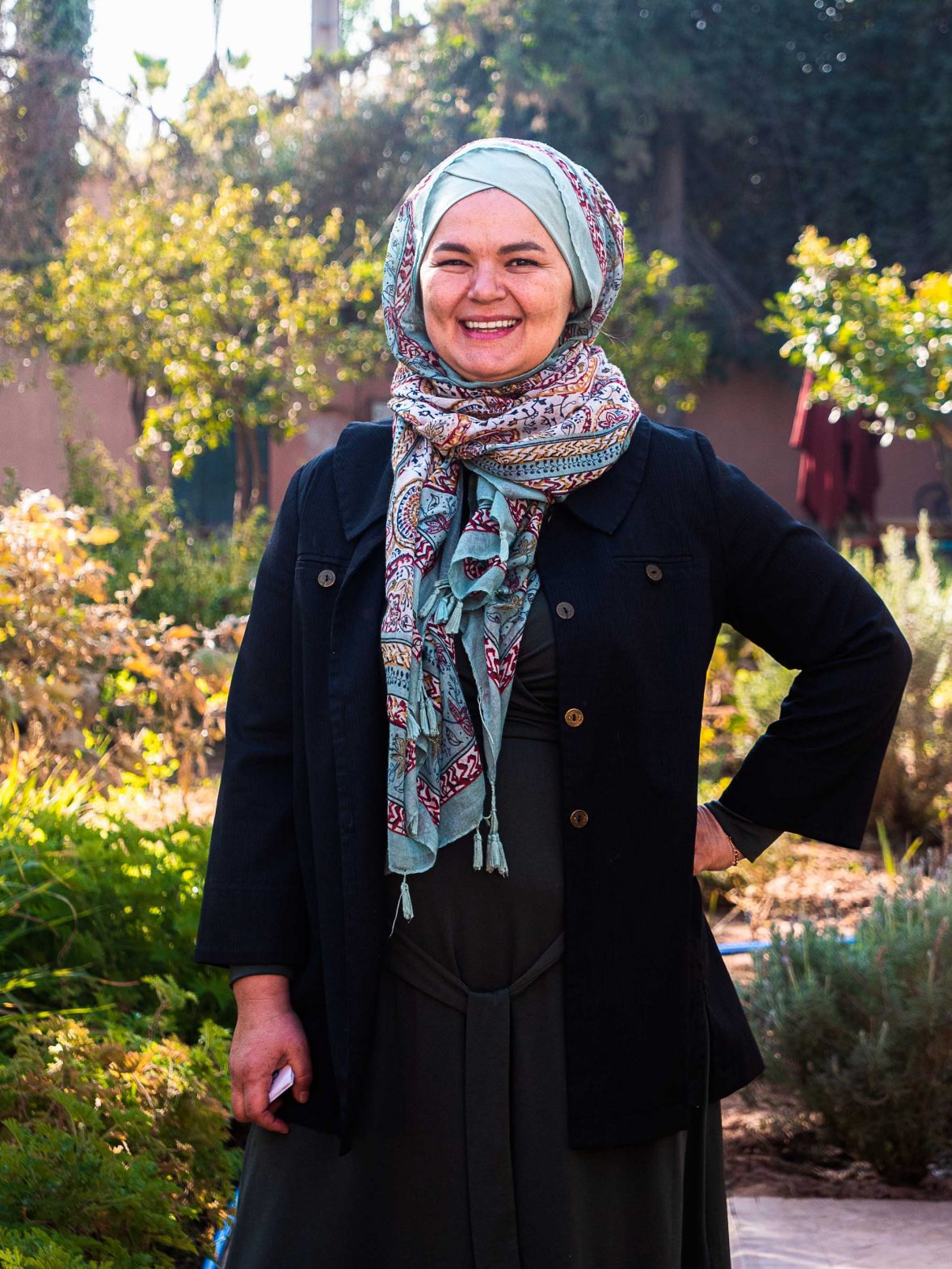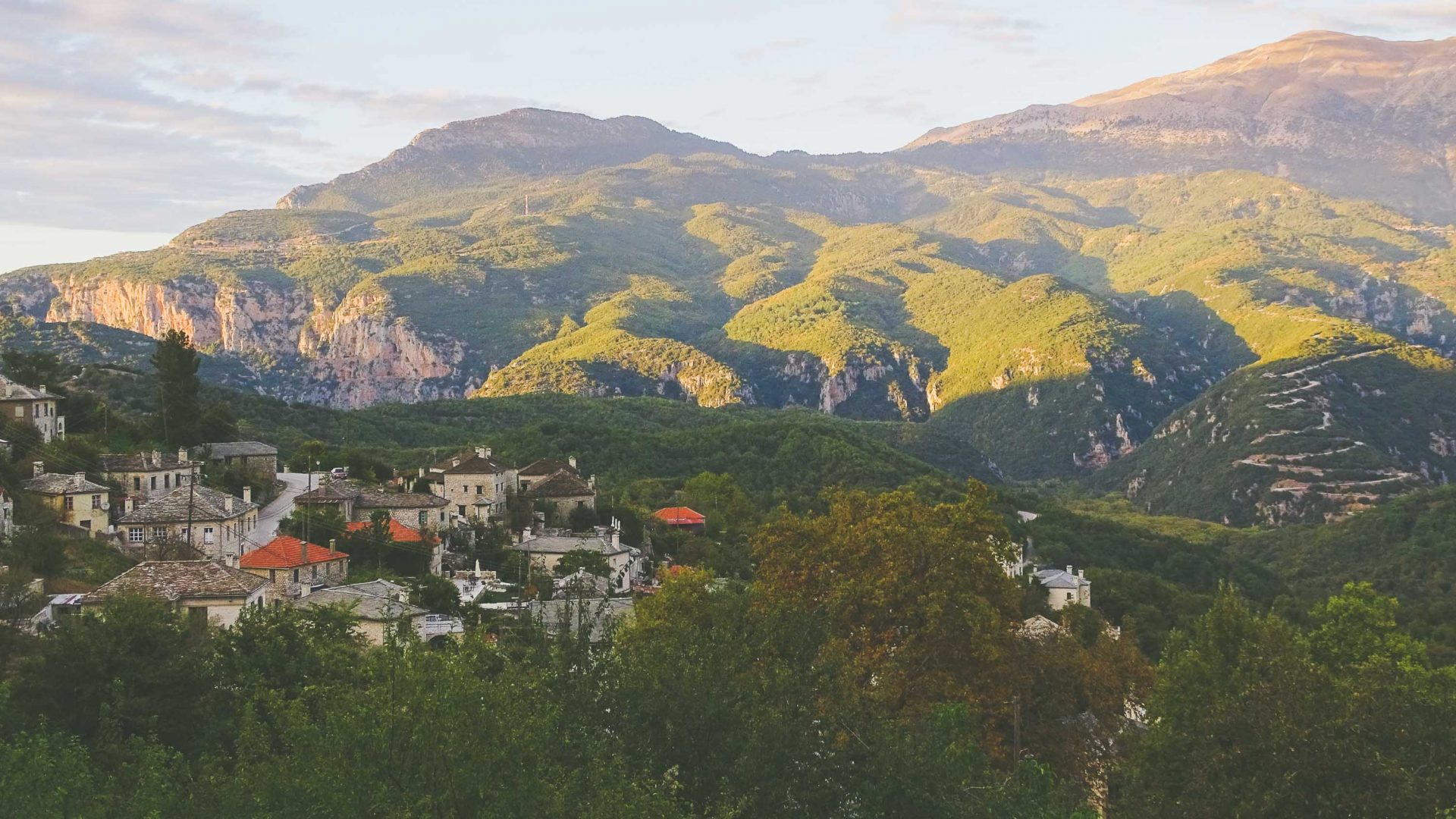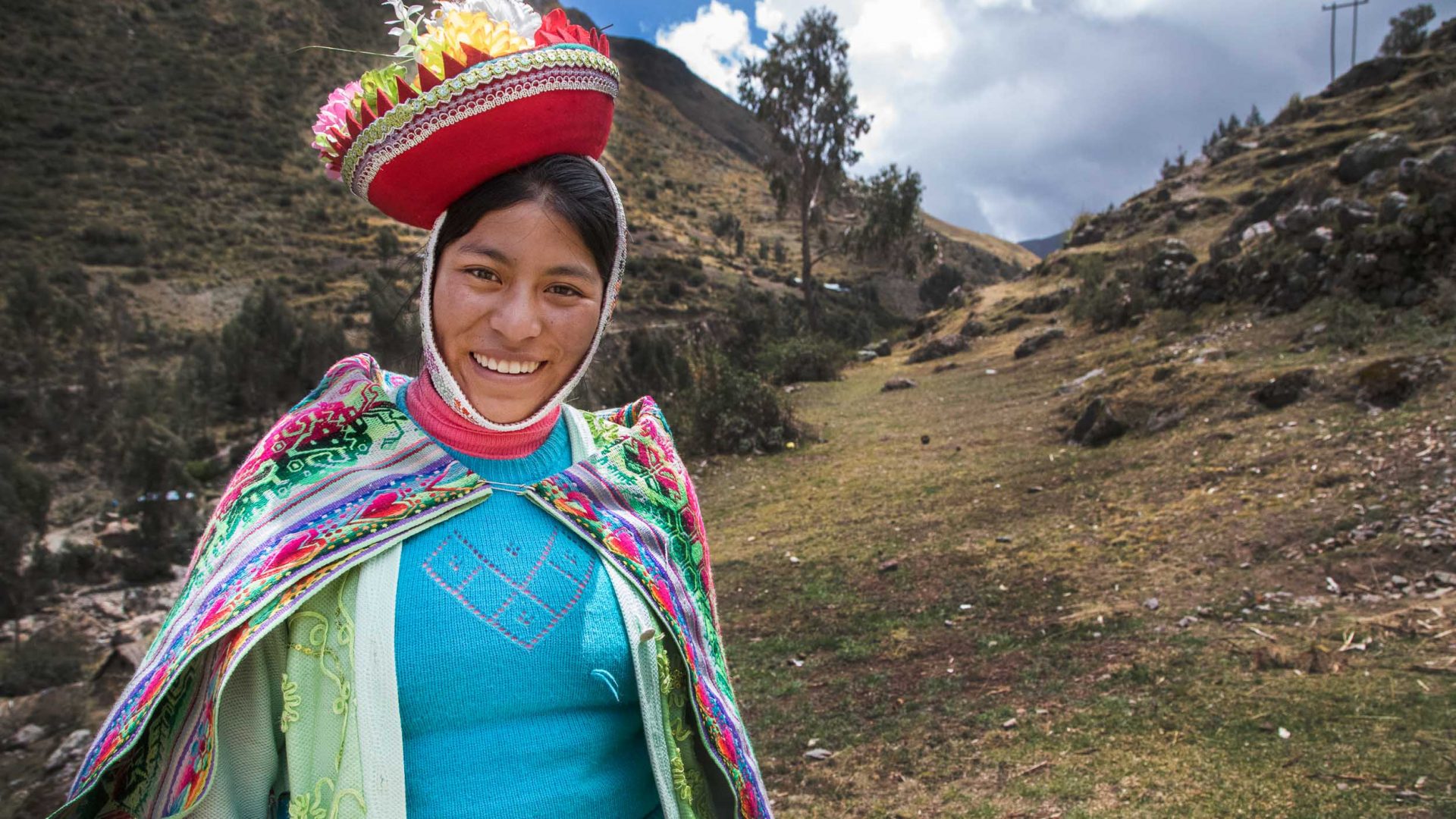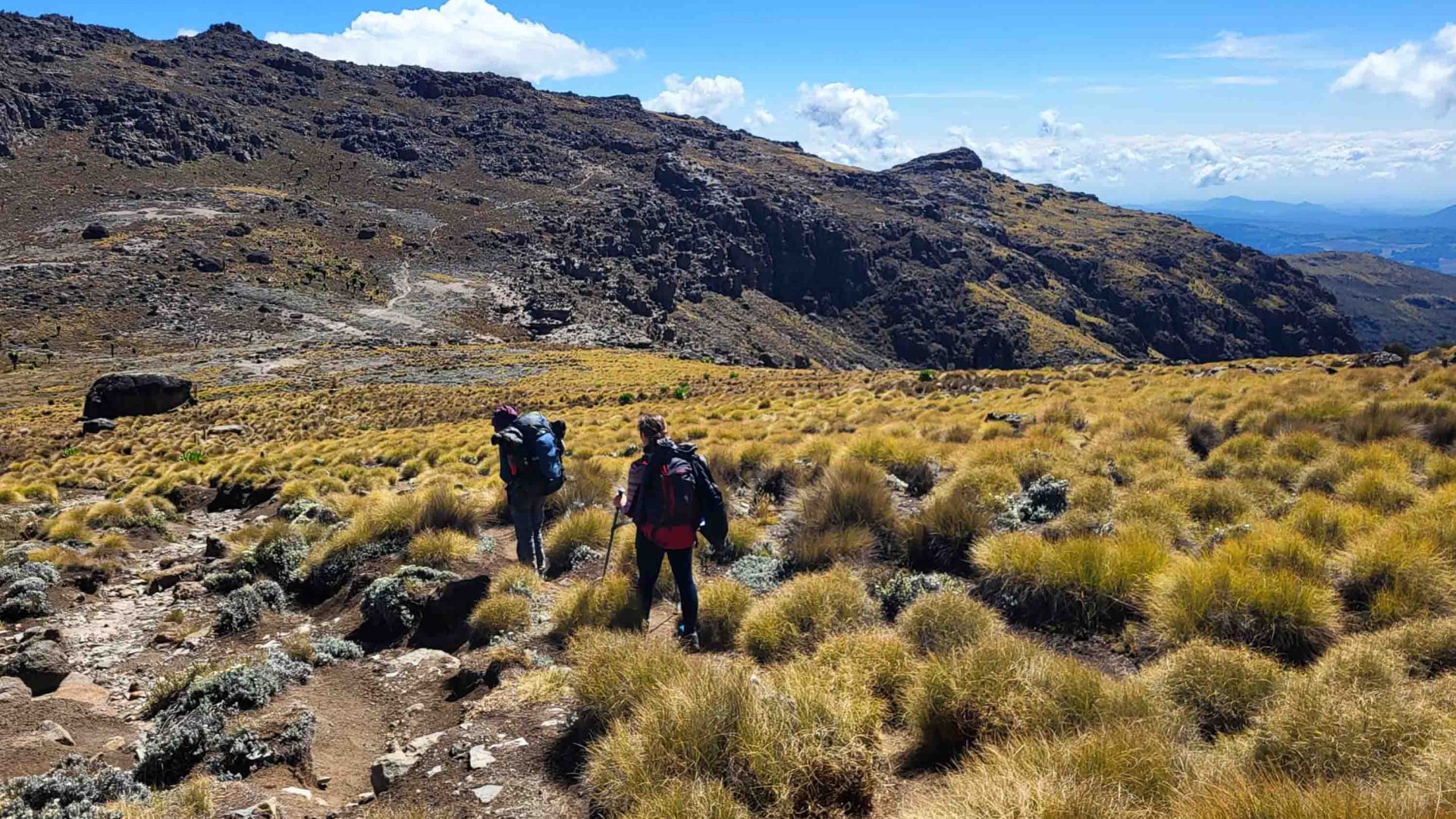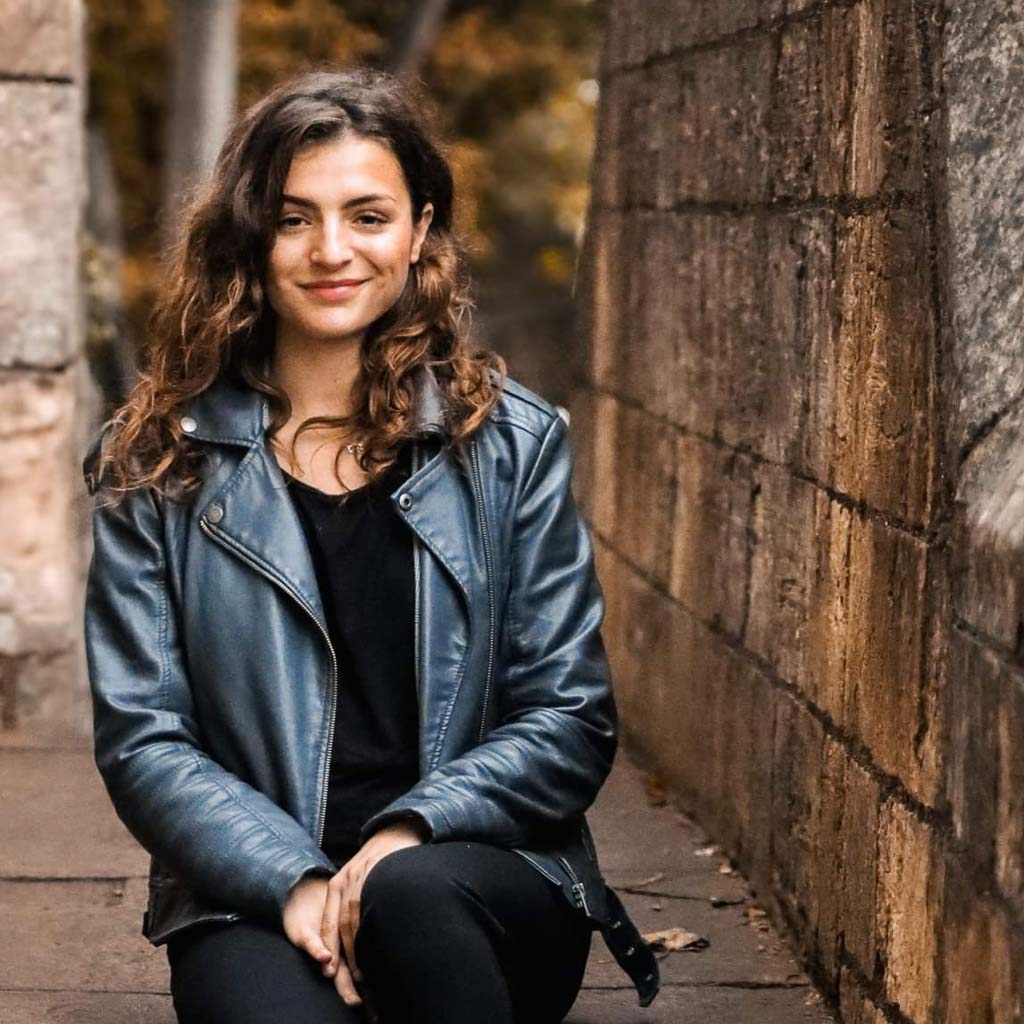Is group travel with a global tour operator compatible with supporting local economies? Sustainable travel journalist Holly Tuppen investigates on Intrepid’s new premium trip in Morocco.
The small living room vibrates as drums beat, guttural voices wail, and 15 pairs of feet tap to the rhythm. Tables loaded with slow-cooked chicken, spice-drenched salads, and discs of flatbread are rearranged to make a tiny dance floor. There’s not a drop of alcohol in sight, but no-one has noticed.
Our host, Zineb, welcomes more visitors—relatives and neighbours ascending from the dimly lit Marrakesh medina alley below, drawn by the music. Excitement bounces off the walls.
One of Zineb’s relatives sidles up to paint henna at record speed across my hands. “Praise be to God; we can breathe now!” she exclaims when I ask how lockdown has been. It’s been severe in Morocco, so the party is a novelty. Traditional celebratory Cha’abi music, which means ‘of the people’, soon gets everyone on their feet.
Later that night, head spinning and ears thumping, I marvel at the intimacy of the evening. I’m in Morocco with Intrepid Travel (disclaimer: parent company of Adventure.com), traveling as part of a group of 8 people. I’ve always been sceptical of group trips and expected a staged show for tourists. A hang-up, perhaps, from the naff package holidays of my childhood. These days, I consider independent travel to be more meaningful; real travelers don’t need handholding, I tell myself.
Independent travel also feels more responsible. In 2020, the UNWTO published a staggering fact that $5 in every $100 spent by tourists in the developing world leaks out of those countries back to global businesses. Tour operators are primarily responsible, sometimes siphoning off 90 per cent of a trip fee. With that in mind, can group trips with tour operators ever be compatible with responsible tourism?
RELATED: Sponsored: Why Morocco hits the spot every time
The next morning, I ask our tour guide, Fouad Oulmyr, whether last night’s genuine interaction with locals is the norm. “Yes, of course,” he replies. “That’s why everyone wants to work for Intrepid—they put the effort in to support local people, for food, experiences, and accommodation. This is good for everyone.”
I wonder whether his words will ring true at the end of the trip.
The first stop is Tawesna, an idyll of homecooked fare and handcrafted rugs and stools in a green riverside nook. Lunch is as delicious as it is enlightening as the all-female chefs explain, “This is our place, and it’s somewhere we can meet other women from our community and all over the world.”
The restaurant was set up to reduce urban migration by providing local employment that fits around childcare and other responsibilities—but its appeal is more than economic. Pride, comradery, and community seep out of every little interaction with the six women cooking and serving food.
RELATED: In photos: How sport and creativity is giving Gaza’s youth a vital release
Deeper into the village, we stop by Hafidi Zizi’s newly opened gallery. After suffering from an abusive marriage since she was 15, Hafidi escaped its clutches and gradually discovered a love and talent for painting. Today, her naïve artworks are inspired by the late Moroccan artist Caibia Talal, rejecting academism to depict life in rural, working-class Morocco.
Vibrant images contrast with the simple, white-washed adobe walls of the gallery. Loubna Mouna, co-founder of We Speak Citizen, which funded the gallery, explains, “We want to create spaces for living culture so that communities like this can thrive.”
Impressed by how much of our trip seems to be pouring money into local economies, I ask Intrepid’s managing director EMEA, Zina Bencheikh, whether this is true of all their suppliers.
“It varies by destination,” she says. But we have a procurement policy that prompts our local offices (their Destination Management Company or DMC, Peak) to not only work with locally owned suppliers but particularly those owned by women or minority groups.”
Zina continues, “In Morocco, 90 per cent of our top 50 suppliers are locally-owned.” On top of that, Intrepid’s Morocco office (recently awarded B Corporation status) pays local taxes, and employees are 100 per cent Moroccan. Of the trip fee paid by guests, 60 per cent stays in the destination.
Hiking into the mountains the next day, we’re accompanied by villager Chirif Lamzodi, who has been a trekking guide for more than 30 years. Chirif points out juniper bushes, carob trees, willow, yellow walnut, and wild mint as we pass village-managed woodland and march across dramatic sandstone contours.
Back in Marrakesh, via a tagine feast at the family home of a former Intrepid driver, Abdelghani, our tour of community-driven projects continues.
Zina and Fouad’s words ring truer and truer. Ait Nejjar takes us on a walking tour of the medina, including a visit to Al Nour, a crafting social enterprise for disabled women. Before leaving the following morning, we load up with Moroccan-style porridge and pastries at the Amal Centre, a beautiful home and garden and non-profit association training women in culinary skills.
